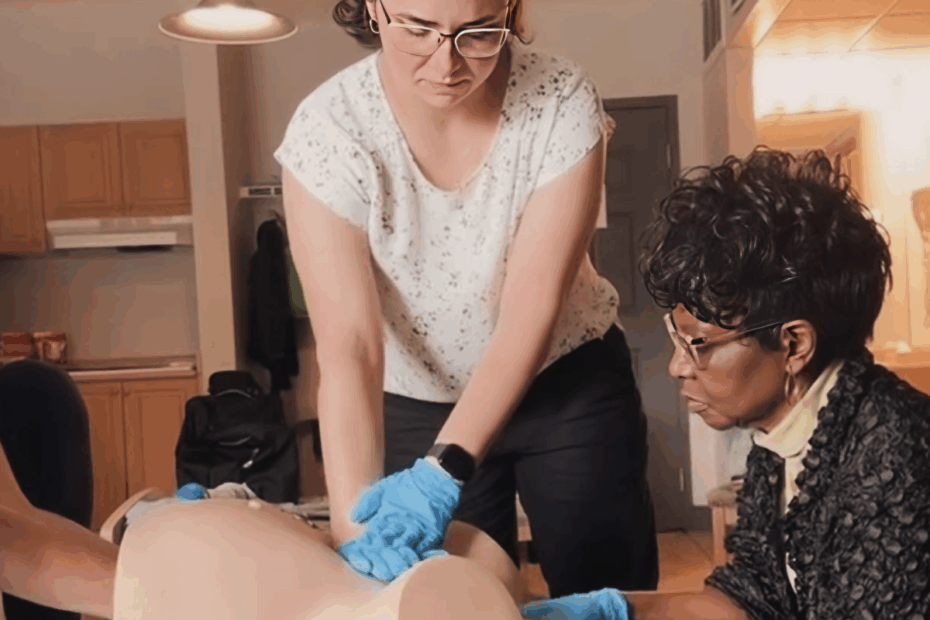Midwives in Canada play a crucial role in sexual and reproductive health care, yet their full scope of practice is often under recognized. Ashlyn Doyle, a midwife based in Fort McMurray, Alberta, demonstrates the evolving role of midwives beyond pregnancy and childbirth to ensure her clients receive the wrap-around support they need—and the importance of educating other care providers about the services that midwives can provide.
Midwives can fill gaps in the system when other health providers make use of our skills. We’re trained to provide a wide range of care, but not everyone realizes that.
Ashlyn Doyle
This kind of active interprofessional collaboration is key to Ashlyn’s care philosophy. Another example: when a public health nurse needed assistance for a patient with multiple sclerosis who was unable to access a Pap test, Ashlyn stepped in. “Due to her mobility issues, she wouldn’t have been able to get onto the exam table in a doctor’s office,” explains Ashlyn. “I went to her home and performed the Pap, which she never could have received otherwise. Likewise, I never would’ve known about this woman if that nurse hadn’t reached out. That experience really reinforced for me how midwives can fill gaps in the system when other health providers make use of our skills. We’re trained to provide a wide range of care, but not everyone realizes that.”
Beyond clinical care, Ashlyn is attuned to the social and emotional challenges her clients face. In Fort McMurray, she has observed high levels of social isolation among new parents, which increases the risk of postpartum mental health issues. “Midwifery care creates a different level of relationship with the person. It allows us to ensure they’re not falling through the cracks, which happens so easily when you’re with a care giver who can only see you briefly.”
Her midwifery practice’s commitment to community outreach has a similar effect in reaching underserved clientele. “My colleague will literally fly to a community, walk around the mall or leisure centre, find pregnant people, and see if they’re connected to services. The impact of this is incredible.”
Ultimately, Ashlyn advocates for greater collaboration between providers and recognition of midwifery, believing that better integration of midwives into the healthcare system could significantly improve health outcomes for clients in remote areas. “There’s still a lot of misunderstanding about what midwives do,” she says. “But the more we collaborate with other providers, the more they see the value we bring.”

